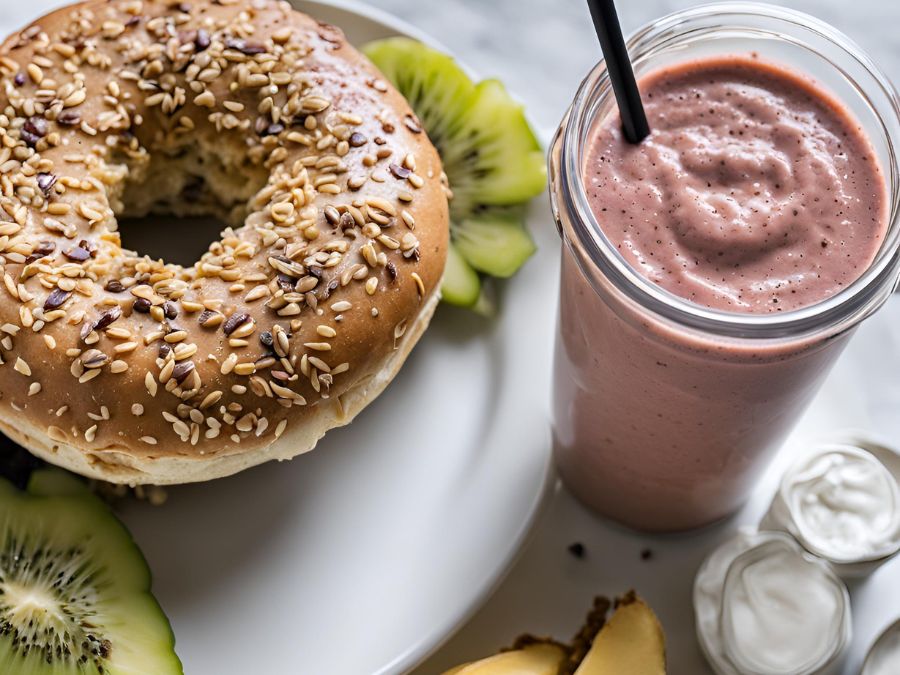When preparing for a race, runners typically focus on building endurance, speed, and strength. However, one key area that often gets overlooked is the gut. A well-trained digestive system is essential for race day, as it helps you fuel your body efficiently without experiencing gastrointestinal (GI) issues mid-run. Sports dietitians agree that just as you train your muscles, you also need to train your gut to handle nutrition during long runs.

Why Gut Training Matters for Runners
“Your digestive tract isn’t used to running while taking in food,” says marathoner and dietitian Natalie Rizzo, MS, RD, founder of Greenletes. The constant motion, combined with blood flow shifting away from the stomach and toward working muscles, can cause stomach discomfort. But, according to Rizzo, you can condition your gut to better tolerate fuel intake by practicing with specific foods and drinks during your training runs.
Angie Asche, MS, RD, CSSD, owner of Eleat Sports Nutrition, advises testing your race-day fueling strategy during runs lasting over an hour. Eating the same breakfast you plan to have on race day and using the mid-run fuel products you intend to consume can help you adapt and refine your nutrition plan.
Common Digestive Disruptors
While everyone’s body is different, some foods are known to trigger GI issues for many runners. According to research published in Nutrients (2021) and Current Opinion in Gastroenterology (2017), these foods should be avoided in the two hours before and during a run:
- Dairy products
- Meat
- Caffeine
- Sugar alcohols and artificial sweeteners
- High-fat or high-protein foods
- Foods with 5 grams or more of fiber
Preparing Your Digestion for Race Day
Plan Your Prerace Meal
Your prerace meal should provide adequate carbohydrates to fuel your body. The general recommendation is to consume at least 1 gram of carbs per kilogram of body weight leading up to the race. For a 180-pound runner, that’s about 82 grams of carbs. If you have three to four hours before the race starts, aim for 3 to 4 grams of carbs per kilogram of body weight.
 Dietitian Megan Robinson, MS, RD, CSSD, suggests a meal like a large bagel with nut butter and a fruit smoothie (made with a banana, berries, and almond milk) three hours before the race. If you’re short on time, opt for 2 grams of carbs per kilogram of body weight and try a sports drink and pretzels.
Dietitian Megan Robinson, MS, RD, CSSD, suggests a meal like a large bagel with nut butter and a fruit smoothie (made with a banana, berries, and almond milk) three hours before the race. If you’re short on time, opt for 2 grams of carbs per kilogram of body weight and try a sports drink and pretzels.
Time Your Midrun Fueling
For runs lasting more than an hour, aim to consume 30 to 60 grams of carbohydrates per hour, starting after the first 60 minutes. Split this into smaller doses at 30-minute intervals. For example:
- 20 ounces of a sports drink
- One energy gel
- A medium banana
Rizzo recommends starting with smaller amounts and gradually increasing your intake during training. Begin with half a gel or a small portion of a sports drink, and over time, double the intake every two weeks to build up your gut’s tolerance.
Hydrate Smartly
Staying hydrated is crucial, especially when consuming carb-dense products like gels or chews. Without enough water, these can cause stomach cramping or GI distress. Aim to drink 4 to 8 ounces of water every 15 minutes to ensure proper hydration and prevent digestive issues.
Listen to Your Body
GI symptoms like side stitches, bloating, or nausea are signs that your gut might be struggling. Adjust your carb intake based on how your body feels. Asche suggests starting with 1 gram of carbs per kilogram of body weight and increasing as needed if you’re feeling sluggish or low on energy.

Supporting Gut Health on Rest Days
On days with lighter training or rest, focus on foods that promote a healthy gut. Fermented foods such as yogurt, kefir, and sauerkraut are rich in probiotics, which can improve gut health, according to Rizzo. Increasing fiber gradually in your diet can also help prevent constipation. However, be cautious not to overdo it, as too much fiber too quickly can lead to GI distress.
Fueling for the Finish Line
Training your gut for race day is just as important as training your muscles. By practicing how to fuel during long runs, staying hydrated, and supporting your gut health, you’ll be ready to tackle race day without digestive discomfort, leaving you to focus on hitting your personal best.

























